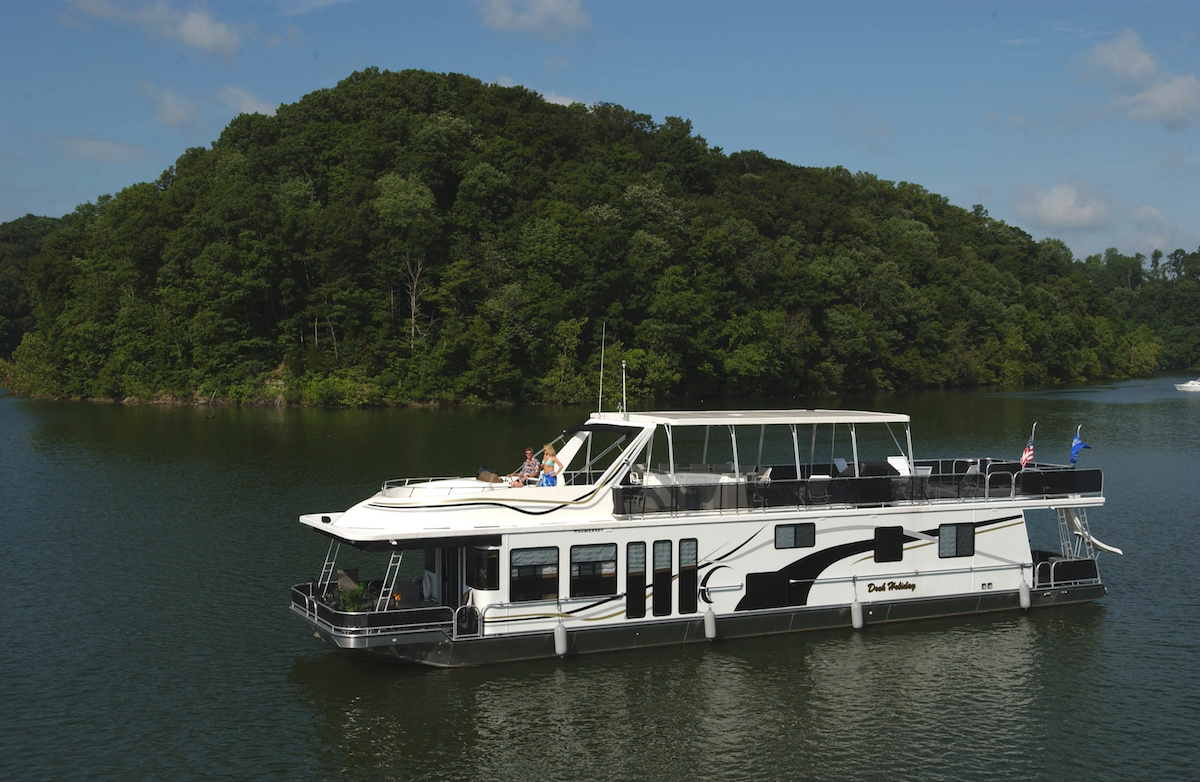There's something undeniably enchanting about spending a night aboard a boat. However, it might induce anxiety if you've never tried it. Where will you sleep? What if there are leaks? How do you manage food, water, or even hygiene? Can you sleep on a boat comfortably and safely?
These apprehensions can seem daunting, but proper planning and preparation can transform those trepidations into an exhilarating experience.
Learning how to sleep on a boat can be tricky for some. So, let's set sail into the night and discover how to conquer this maritime endeavor.
The Basics of Boat Sleeping: Understanding Your Boat
Before delving into what you need to pack, understanding your boat's sleeping arrangements is essential. Does your boat have a cabin, or will you be sleeping on the deck under the stars?
The availability of indoor versus outdoor space can drastically change sleeping arrangements. An indoor cabin may provide shelter from the elements but can feel cramped. Sleeping on the deck allows you to be one with nature but demands preparations for unpredictable weather.
Items to Pack: Essentials for Overnight Boating
When it comes to learning how to sleep on a boat, packing light isn't the best strategy. While you don't want to overcrowd your boat with unnecessary items, you also want to avoid being caught unprepared in the middle of the water.
1. Sleeping gear
Invest in a quality sleeping bag suitable for the climate of your boating location. Consider a waterproof and windproof sleeping bag for those planning to sleep on the deck. Also, an inflatable pillow will provide much-needed comfort without taking up much space.
2. Cooking supplies
A camping stove, utensils, and portable coolers will ensure you have hot meals and refreshing drinks. Remember to pack sufficient water and easy-to-cook meals.
3. Safety equipment
Ensure your boat is equipped with all necessary safety gear. This includes life jackets, a first aid kit, a fire extinguisher, flares, marine VHF radio for communication, and a flashlight or headlamp for visibility at night.
4. Personal items
Pack toiletries, sunscreen, insect repellent, towels, and a change of clothes.
Preparing Your Boat: Safety Checks and Considerations
Preparing your boat for overnight sleeping involves multiple safety checks.
Ensure your boat is in excellent working condition, with all engines and electrics operating correctly. It's crucial to have fully functioning navigation lights for visibility. Check for leaks and address any damage before your trip.
Remember to anchor securely for the night. A GPS anchor alarm can alert you if your boat drifts from its original location, providing an added level of safety.
Setting Your Sleep Environment
Adjusting your body to sleep on a boat can be a challenge. If you are sleeping indoors, ensure proper ventilation. If you're sleeping outdoors, set up a tent or canopy for protection against weather and insects.
Consider using earplugs to block out the noise of lapping waves or wind if these sounds disturb your sleep. The boat's constant motion can also disrupt sleep, so you should try different positions to find what's most comfortable.
Coping With Seasickness: A Potential Sleep Disruptor
No matter how romantic sleeping on a boat might sound, seasickness can be a deal-breaker for many.
The constant motion of the boat, especially in rough waters, can lead to nausea and general discomfort, disrupting your sleep. It's essential to prepare for this possibility.
Over-the-counter medication or natural remedies such as ginger capsules can help manage symptoms. Some people find that acupressure wristbands work well. Familiarize yourself with techniques to combat seasickness and pack accordingly.
Maintaining Hygiene: A Must for Comfortable Sleep
Maintaining hygiene may present a unique challenge when sleeping on a boat overnight, especially if your boat lacks toilet facilities. In such situations, portable camping toilets can be a practical solution.
For bathing, consider water-friendly biodegradable wipes or a solar shower. Remember to pack enough toilet paper, hand sanitizer, and a small bin for waste.
Connectivity and Entertainment: Staying in Touch and Entertained
If you plan to spend the night offshore, consider how you will stay connected. A marine VHF radio is essential for safety and communication, but consider a portable wifi device for personal use. Satellite phones can be a handy tool when you're outside regular network coverage.
After sunset, the boat can get quite dark and quiet. Ensure you have some forms of entertainment like books, boating games, or a portable speaker for music. Rechargeable LED lights or lanterns can help light up the boat at night, creating a warm and inviting atmosphere.
Read Next: 15 Boating Games to Play On-Board
The Sounds of the Sea: Managing Noise While Sleeping
Even when the engine is turned off, boats are rarely silent. The water lapping against the hull, the creaking of the vessel, and the calls of marine life can all create a soundscape unfamiliar to the uninitiated.
Some find these noises soothing, but others may find it challenging to sleep through them. Consider packing noise-canceling headphones or a white noise machine to help drown out disruptive sounds.
Privacy Matters: Creating a Personal Space
On smaller boats or if you're with a group, creating a personal space for sleeping can be challenging but essential for a good night's sleep. Consider investing in a pop-up privacy tent if you're sleeping on the deck.
In a shared cabin, hanging up a curtain can create a pseudo-private space. Earplugs and eye masks can also provide privacy and help you sleep better.
These extra considerations can significantly enhance your overnight boating experience, making it an enjoyable adventure rather than a challenge. Once you're all set with these preparations, you can proceed with your final route planning and weather checks.
Final Preparations: Weather Checks and Route Planning
Lastly, always check the weather forecast and plan your route in advance. Understand the tides, currents, and any potential hazards along your route. Be aware of the local marine life and understand what to do if you encounter any.
Inform someone onshore about your plans – where you're going, your route, and when you expect to return. This can be a crucial safety net if something unforeseen happens.
Read Next: Weather Safety Tips
Conclusion: Ready for the Overnight Boating Adventure
So can you sleep on a boat? Yes! But sleeping on a boat overnight, for the uninitiated, may seem like a challenge fraught with fears and uncertainties.
However, proper preparation and care (as outlined in this detailed guide) can transform into an incredible, unique experience.
Are you ready for this maritime escapade? As you venture into the vast expanse of the sea with the stars as your canopy, remember that with these tips, you'll be prepared and confident.
Embrace the enchanting call of the sea, and embark on your overnight boating adventure. After all, isn't life too short not to seize such mesmerizing experiences?


